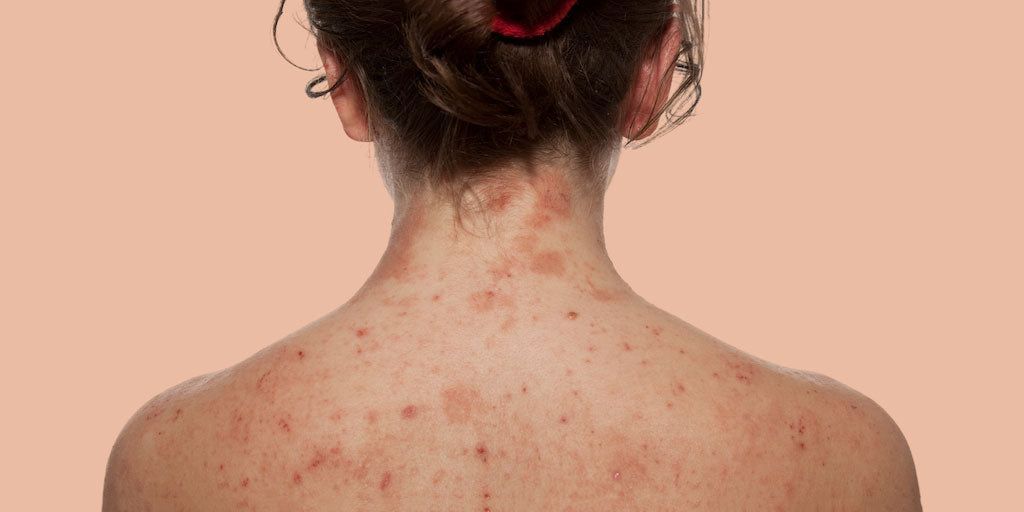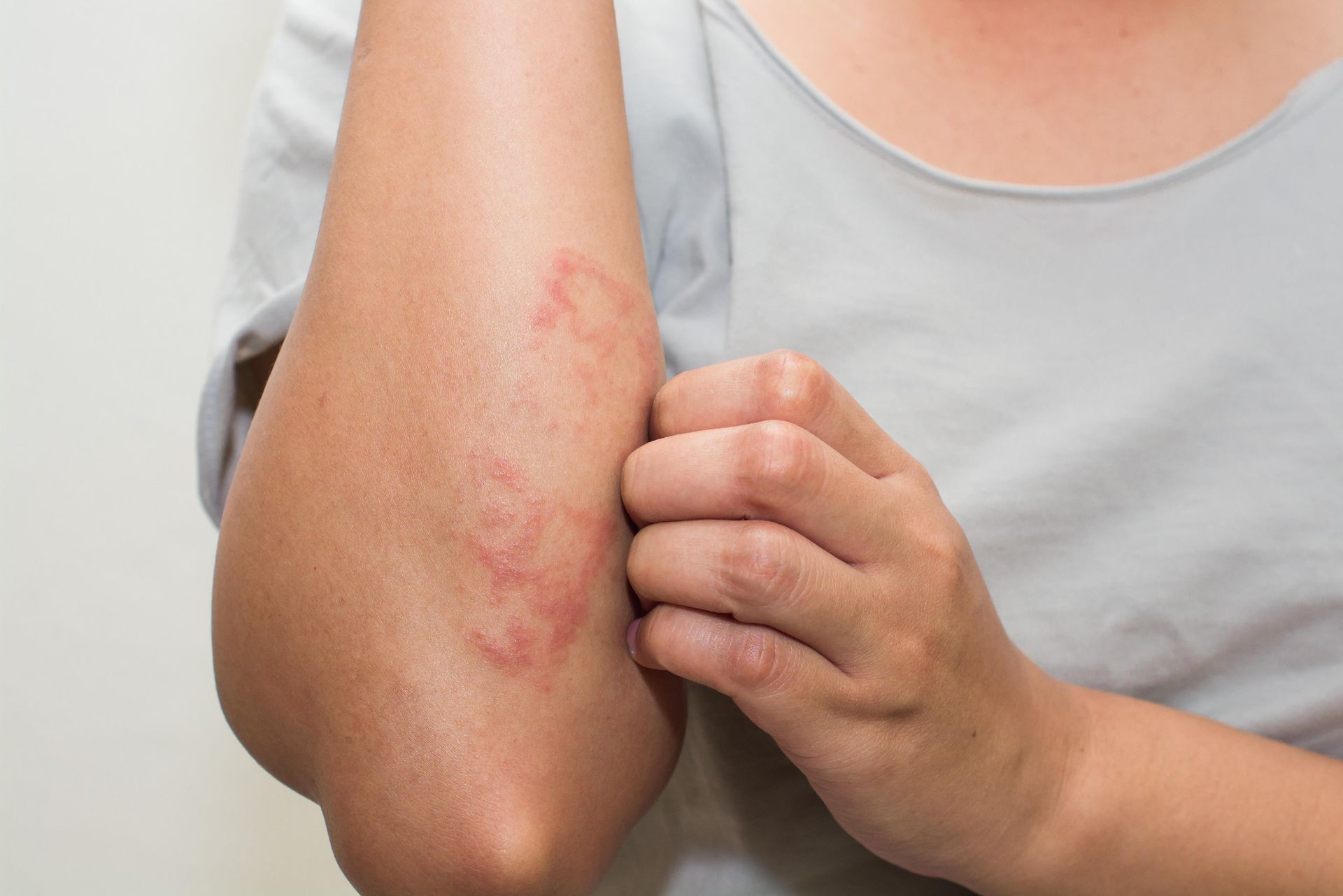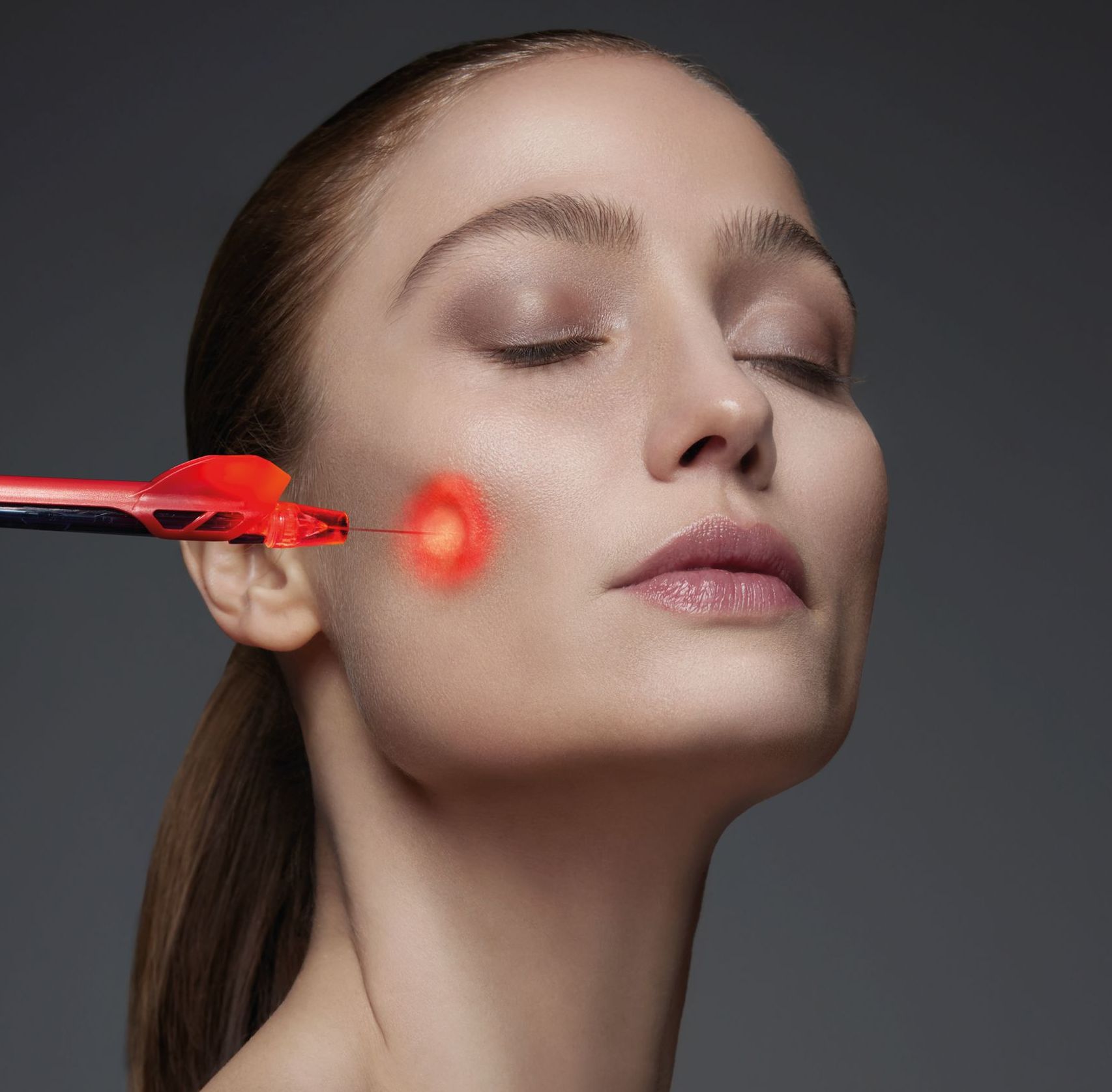Free Beauty Coach
ECZEMA
What is Eczema?
Eczema is a common skin condition that causes dry, itchy, and bumpy patches of skin, often triggered by irritants or allergens. It weakens the skin’s barrier function, making it harder for the skin to retain moisture and protect against outside elements.
While eczema isn’t contagious and has no cure, treatments are available to help manage symptoms and reduce flare-ups.
At Gustil Aesthetic Center, a magical skin treatment can help alleviate the discomfort and appearance of eczema, improving your skin’s health and function. Eczema is a form of dermatitis, a group of conditions that cause skin inflammation.

Causes
The first signs of eczema are itchiness, dry skin and a rash. These signs indicate that you came into contact with a trigger in your environment that caused your symptoms to start or flare up. Identifying environmental triggers and avoiding them can reduce your risk of an eczema flare-up in your future.
Symptoms of eczema include:
- Dry skin.
- Itchy skin.
- Skin rash.
- Bumps on your skin.
- Thick, leathery patches of skin.
- Flaky, scaly or crusty skin.
- Swelling.
Several factors cause eczema, including:
- Your immune system: If you have eczema, your immune system overreacts to small irritants or allergens (triggers) in your environment. When you contact a trigger, your immune system assumes that these small irritants are foreign invaders, like bacteria or viruses, that can harm your body. As a result, the triggers activate your body’s natural defense system. Your immune system’s defense is to create inflammation. Inflammation causes symptoms of eczema on your skin.
- Your genes: You’re more likely to have eczema if there’s a history of eczema or dermatitis in your family. You’re also at a higher risk if there’s a history of asthma, hay fever and/or allergies. Common allergies include pollen, pet hair or foods that trigger an allergic reaction. You could also have a genetic mutation that causes your skin’s barrier function to not work as it should.
- Your environment: There’s a lot in your environment that can irritate your skin. Some examples include exposure to smoke, air pollutants, harsh soaps, fabrics such as wool, and some skin care products. Low humidity (dry air) can cause your skin to become dry and itchy. Heat and high humidity can cause sweating and that can make your itchiness even worse.
- Emotional triggers: Your mental health could affect the health of your skin, which can cause a flare-up of eczema symptoms. If you have high levels of stress, anxiety or depression, you may have more frequent flare-ups of eczema symptoms.
Prevention
To prevent eczema, keep your skin moisturized with gentle, fragrance-free products, and avoid known triggers like harsh soaps, allergens, and irritants. Use lukewarm water for showers, wear soft fabrics like cotton, and manage stress to reduce flare-ups. Keep your environment humid to prevent dryness and avoid scratching, which can worsen symptoms. A healthy diet and consulting a dermatologist can also help manage and prevent eczema.

Frequently Asked Questions
What are the types of eczema?
There are several types of eczema. Each type has unique triggers that can affect your skin’s barrier function, including:
- Atopic dermatitis.
- Contact dermatitis.
- Dyshidrotic eczema.
- Neurodermatitis.
- Nummular eczema.
- Seborrheic dermatitis.
It’s possible to have more than one type of eczema at the same time.
Does eczema hurt?
Eczema doesn’t usually cause pain. If you scratch your skin, you could break the surface of your skin and create a sore, which could be painful. Some types of eczema, like contact dermatitis, cause a burning sensation and discomfort.
Who does eczema affect?
Eczema can affect anyone at any age. Symptoms usually appear during childhood and last into adulthood. You might be more at risk of having eczema if you have a family history or a diagnosis of:
- Dermatitis.
- Allergies.
- Hay fever.
- Asthma.
How common is eczema?
In numbers, about 223 million people are living with atopic dermatitis in 2022 (GBD 2022), of which around 43 million are aged 1-4. This illustrates the strikingly high prevalence in young children. In addition to the disease burden for the child and their caregivers, atopic dermatitis can also negatively affect the development of the child, education, and work. Atopic dermatitis is also often the precursor of food allergies, allergic rhinitis and asthma. Many adult and adolescent patients with atopic dermatitis suffer of psychological co-morbidities, such as social withdrawal, anxiety and depression.
What does an eczema rash look like?
Eczema can look different on each person diagnosed with the condition. If you have a dark skin tone, an eczema rash can be purple, brown or gray. If you have a light skin tone, an eczema rash can look pink, red or purple.
Where do symptoms of eczema appear on my body?
Symptoms of eczema can show up anywhere on your skin. The most common places where you’ll notice symptoms of eczema include on your:
• Hands.
• Neck.
• Elbows.
• Ankles.
• Knees
• Feet.
• Face, especially cheeks.
• In and around ears.
• Lips
While less common, eczema can also occur on your:
• Nipples.
• Breasts.
• Folds of skin near your vagina (vulva).
• Penis.
What triggers eczema to flare up?
Eczema affects each person diagnosed with the condition differently. What causes your symptoms to flare up might not trigger someone else with the condition. Common triggers that cause eczema include:
• Dry weather (low humidity).
• Fabrics or clothing material.
• Makeup or skin care products.
• Smoke and pollutants.
• Soaps and detergents.
• Stress or your emotional well-being.
• Touching something you’re allergic to.
Do certain foods trigger eczema?
The connection between eczema and food allergies is unclear. If you have food allergies, then one of the reasons why you must avoid that food is that it may cause or worsen your eczema symptoms. Examples of common allergies include:
• Peanuts.
• Dairy.
• Eggs.
Pay attention to what you eat. If your eczema flares up after you eat a certain food, then you might have an allergy to it. If you don’t have a food allergy, then there are no foods that will cause or worsen your eczema
Is eczema contagious?
No. Eczema isn’t contagious. You can’t spread eczema through person-to-person contact.
How is eczema diagnosed?
A healthcare provider will diagnose eczema after a physical exam, where they can take a close look at your skin. Most often, people receive an eczema diagnosis as a child, as it’s common among children, but a diagnosis can happen at any age when symptoms arise.
Symptoms of eczema can look similar to other conditions. Your provider might offer tests to rule out other conditions and confirm your diagnosis. Tests could include:
• An allergy test.
• Blood tests to check for causes of the rash that might be unrelated to dermatitis.
• A skin biopsy to distinguish one type of dermatitis from another.
Which treatments are good for Eczema?
Your treatment for eczema is unique to you and what caused your symptoms to flare up. Treatment for eczema could include:
• Using gentle or sensitive skin moisturizers throughout the day when you have dry skin. Apply moisturizer when your skin is damp after a bath or shower.
• Apply topical medications to your skin as advised by your provider, like topical steroids.
• Take oral medications like anti-inflammatory medicines, antihistamines or corticosteroids to reduce itchiness and swelling.
• Immunosuppressant drugs help regulate how your immune system functions.
• Avoid triggers that cause symptoms of eczema to flare up.
How do you treat childhood eczema?
If your child has skin issues, such as eczema, you can:
• Give your child a short, warm bath instead of a long, hot bath, which can dry out their skin.
• Use moisturizers several times daily. In infants with eczema, moisturizing on a regular basis, like with each diaper change, is extremely helpful.
• Keep the room temperature as regular as possible. Changes in room temperature and humidity can dry your child’s skin.
• Keep your child dressed in cotton. Wool, silk and synthetic fabrics such as polyester can irritate their skin.
• Use sensitive skin or unscented laundry detergent.
• Help your child avoid rubbing or scratching at their skin.
Treatments recommended by Gustil Aesthetic Center:
Our exclusive treatment in the NL, HydraJet with NASA Technology with BLUE LED (based on NASA development), customised for eczema, your skin colour, your skin type and considering others skin issues.
* To achieve the best version of your skin, buy pack of 6 treatments. You need to compromise to come every 2 weeks to improve the result and to use the skincare products at home.
Buy from our webshop the best skincare, award-winning, to treat your skin:
Every day:
- Cleansing Complex from iS Clinical
- Super Serum Advance+ from IS Clinical
- Sheald Recovery Balm from IS Clinical
- Extreme Protect SPF 40 from iS Clinical or Syl 100 SPF 50 from Skin Clinic / morning
Every 3 days:
- Retinol + Emulsion 0.3 from iS Clinical









